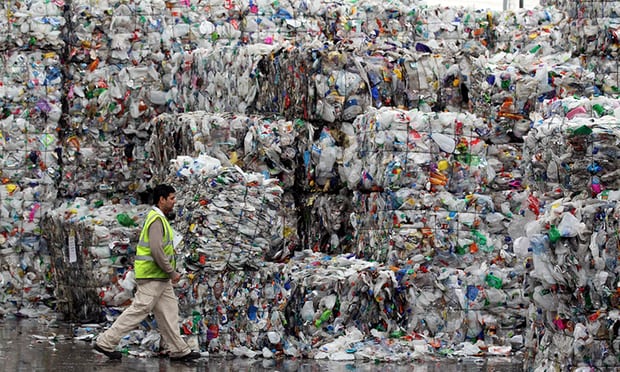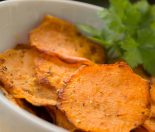Hannah Blumhardt and Liam Prince from The Rubbish Trip continue their zero waste series with everything you need to know about zero waste grocery shopping in New Zealand.
Low-waste grocery shopping is all about choosing to buy certain items that are less wasteful than others, looking out for stores and businesses that sell their food unpackaged, and bringing your own bags and containers to fill up so you can skip the packaging!
To find out what low-waste shopping options exist in your local area, check out The Rubbish Trip’s Regional Zero Waste Shopping Guides.
When we look into our household’s rubbish and recycling bins, most of what’s in there will be rubbish associated with our groceries; especially food (the packaging our food came in or even food scraps themselves). A lot of rubbish also comes from our bathroom and cleaning products. Decoupling our groceries from wastefulness involves 2 things:
- Opting for less wasteful alternatives to common household products.
- Changing some of our shopping habits to avoid so much unnecessary packaging, especially starting to shop in stores where food is sold unpackaged, and bringing your own reusable bags, containers and jars so that you have something to put the unpackaged food into!
Less wasteful alternatives to common household products
You don’t have to turn your life upside down to reduce your waste. Make some simple purchasing decisions when out shopping that will help you to cut down rubbish at home, while still getting the job done. For example:
- A home compostable bamboo toothbrush instead of a plastic toothbrush.
- Natural fibre dishcloths and bench wipes instead of synthetic cloths and sponges.
- Bars of soap instead of liquid handwash and body wash that come in plastic bottles. You can also get soap bars for shampoo, conditioner, deodorant and shaving cream.
- Beeswax wrap instead of plastic cling film.
- Homemade cleaning products and toiletries (see our recipes on our website here and here), or else take your old bottles to somewhere like Bin Inn or your local organic store and get refills of cleaning products and toiletries.
To find out where you can find items like this in your local area (and more!) check out The Rubbish Trip’s Regional Zero Waste Shopping Guides.
Shopping in places that sell unpackaged foods
At first, low-waste grocery shopping can seem really daunting because when we think of where we get most of our food – the supermarket – so much of what’s in there is packaged.
Next time you go to the supermarket, have a look down the aisles and take a moment to reflect on how much food you can see versus how much packaging you can see.
It starts to give us a sense of the scale of the problem.
We’ve found living a low-waste lifestyle has transformed the way that we get our groceries. These days, we rarely shop at supermarkets because it’s so incredibly difficult to get all the groceries we need there without also bringing home lots of waste. Furthermore, the low-waste options the supermarkets do have tend to be more expensive than equivalent items elsewhere (or equivalent items in the supermarket that are packaged), which isn’t great if you’re on a budget.
So, where else can you shop if you’re keen to live low waste?
We recommend looking out for stores where goods are sold unpackaged and the store owners are happy for customers to BYO bags and containers to put the goods put in. We’re so lucky in New Zealand as we have lots of options for this kind of shopping:
- Meat from butchers
- Fish from fishmongers
- Fruit and veg from anywhere that sells it loose rather than pre-packed
- Bread from bakeries
- Wholefoods/pantry staples from stores with bulk bins, such as Bin Inn, Bulk Barn, organic stores and so on.
- Local markets, where many stallholders sell their wares unpackaged or in glass jars that you can return to the vendor for sterilisation and refill!
Again, if you’re unsure where these kinds of shopping options might be in your local area, check our Regional Zero Waste Shopping Guides – we’ve done the research so that you don’t have to! We’re still producing these for some parts of New Zealand, but we have many online already.
So have a look and see what’s available near you!
Low-waste shopping at the supermarket
If you’re used to shopping at the supermarket, the idea of changing your go-to source of food may seem a monumental task.
We always say it’s best not to try and do everything all at once; especially for those with busy or hectic lifestyles. Because it can be too overwhelming.
If you’re just getting started, there are ways that you can reduce waste while still shopping at the supermarket.
When we shop at supermarkets, we focus on the outer edges – the fruit and veg section, the bulk aisles, the butchery/deli and the bakery. These are the parts of the supermarket where you can find items that aren’t already pre-packed (so you can use your own bags and containers rather than the single-use plastic or paper bags that the supermarket provides).
Getting unpackaged fruit and veg at the supermarket is pretty easy, as is putting unpackaged loaves of bread into our own reusable bread bags. If there’s a live mussels section, we’ll put those straight into an upcycled ice cream container or large Tupperware container.
We use our own bags at the bulk aisle, though we have to say that wholefoods in the bulk bins at supermarkets are pretty expensive (often more expensive even than bulk wholefoods in an organic store), so unless we’re desperate, we get our pantry staples from places like Bin Inn or organic stores, not the supermarket.
We also try our luck at the supermarket delis to get unpackaged meat, seafood or other deli foods put straight into our own bags and containers. Some supermarkets let you do this, others won’t.
We just keep asking in the hope that one day this question will become more normal and supermarket staff will be less freaked out by it! In fact, change is happening as a result of people asking these kinds of questions. Less than a month ago, New World Howick announced that after their customers repeatedly asked, they now officially allow BYO containers at the butcher and seafood section of the supermarket!
Being prepared with reusable bags, containers, jars etc.
Of course, shopping in stores that sell their food without packaging will only work to keep our waste down if we bring our own bags and containers to put the food into.
These days there’s a lot of focus on avoiding plastic shopping bags at the checkout, and that’s a great place to start, but we’re talking about the next step here. Things like reusable produce bags, small bulk bin bags, jars and containers, which you can use for individual items.
It’s a common misconception you need to go and buy brand new bags, containers and jars when you decide to start low-waste shopping.
You can if you want, but it would be pretty expensive!
We believe if you took any house in New Zealand, turned it upside down and shook it, hundreds of bags and containers would fall out – we probably already have everything we need for a low-waste shop. Here are some ideas:
- Upcycle containers that you already have for deli foods or even bulk pantry staples: old ice-cream, yoghurt and hummus/dip containers, or just take reusable containers or lunchboxes (e.g. Tupperware/Sistema) if you have them already.
- Upcycle glass jars for bulk purchases (at most bulk bin stores you can get these weighed at the counter before you fill them up so that you don’t get charged for the weight of the heavy jar).
- You can fold large pieces of newspaper into paper bags for produce and bread (no need for brown paper bags!)
- Reuse old snaplock plastic bags you have already.
- Upcycle wine bottles and other glass bottles for liquid foods on tap such as oils and vinegars
- If you’re a handy sewer, try making your own produce bags and bulk bin bags out of offcuts of fabric, curtain netting and so on. You can also crochet cotton bags if you know how to crochet!
If you would like lovely new reusable produce and bulk bin bags, there are great options in New Zealand. Our favourites are Rethink and My Vita Bag, which are 100% organic cotton bags.
Now that you know how to go about zero-waste shopping, why not find out more about making your own low-waste snacks. And for more expert advice, check out our Lifestyle: Sustainability section.










